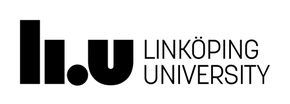Computational Social Science

The programme’s quantitative methods training will help you harness complex data and use them to explore social theories and fundamental questions about human societies. The programme’s theoretical and substantive training will introduce you to the principles of social inquiry and theories of human behaviour, and help you apply your technical skills to pressing social issues such as ethnic segregation in schools, income inequality, entrepreneur- ship, political change, and cultural diffusion.
During your first year you gain perspectives on the philosophy of social science, primers in the science of human decision-making, and frameworks for connecting individual behaviours to outcomes in social systems. You will also learn to apply advanced computational methods–including discrete choice modelling, social network analysis, agent-based simulation, and machine learning—to draw inferences about micro-level behaviours and macro-level outcomes.
With these building blocks in hand, you spend the third semester assembling critical knowledge of key theories and contemporary research in areas relevant to academic social science, government, and industry. During the third semester, you also have the option to study abroad at a partner institution.
In the final semester, you integrate the knowledge, skills, and theoretical approaches garnered in the first three semesters by writing a master’s thesis. As part of your thesis you conduct your own, original, computational research addressing a social scientific topic of your choosing.
Į magistro studijų programas gali stoti visi, baigę universitetą arba besimokantys paskutiniame kurse. Studijos kurias baigei ar tebesimokai turi būti panašios krypties kaip ir tos, į kurias nori stoti, kadangi priėmimas yra paremtas ECTS kreditų suderinamumu.
ECTS kreditų išrašas - jei dar nesi baigęs aukštosios mokyklos, būtina prisegti ECTS kreditų išrašą, kuriame būtų matyti, kokius dalykus Tu mokeisi bei kokius pažymius ir kiek kreditų už juos gavai. Kai siunti anketą paskutiniame kurse, diplomą reikia prisegti vėliau, kai tik jį gausi.
Jei dar nesi baigęs aukštosios mokyklos, prie anketos būtinai turi prisegti šį užpildytą dokumentą, patvirtinantį, kad studijuoji ir šiais metais baigsi savo studijas. Dokumentas turi būti patvirtinas universiteto administracijos.
Bakalauro diplomas – jei jau esi baigęs aukštąją mokyklą, išrašo nereikia, užtenka prie anketos prisegti savo Bakalauro diplomą.
Svarbu, jog anglų kalbos testo sertifikatą ir visus kitus reikalingus dokumentus atsiųstum iki balandžio 10d. Anglų kalbos žinias gali patvirtinti vienu iš šių būdų:
IELTS – 6.5 (ne mažiau nei 5.5 iš kiekvienos dalies).
TOEFL - 90. Ne mažiau 20 (iš 30) taškų turi būti surinkta writing dalyje. TOEFL testo rezultatai privalo būti nusiųsti tiesiogiai iš centro, kuriame laikei testą.
Išimtis! Asmenims, turintiems brandos atestatą, kuriame nurodytas anglų kalbos B2 lygis anglų kalbos testo laikyti nereikia
- Bachelor's degree within one of the following subject areas:
- humanities
- cultural studies
- social sciences
- behavioural sciences
- natural sciences
- computer sciences
- engineering-sciences
- or equivalent
- Selection will be based on academic merits. Each applicant is encouraged to submit a Letter of Intent in order to provide us with more information about their qualifications and how they will contribute to/benefit from the programme. If applicants hold a degree that does not include a bachelor’s essay or project, their Letter of Intent should describe previous studies and any academic activities that are related to the master’s programme or the programmes applied for.

